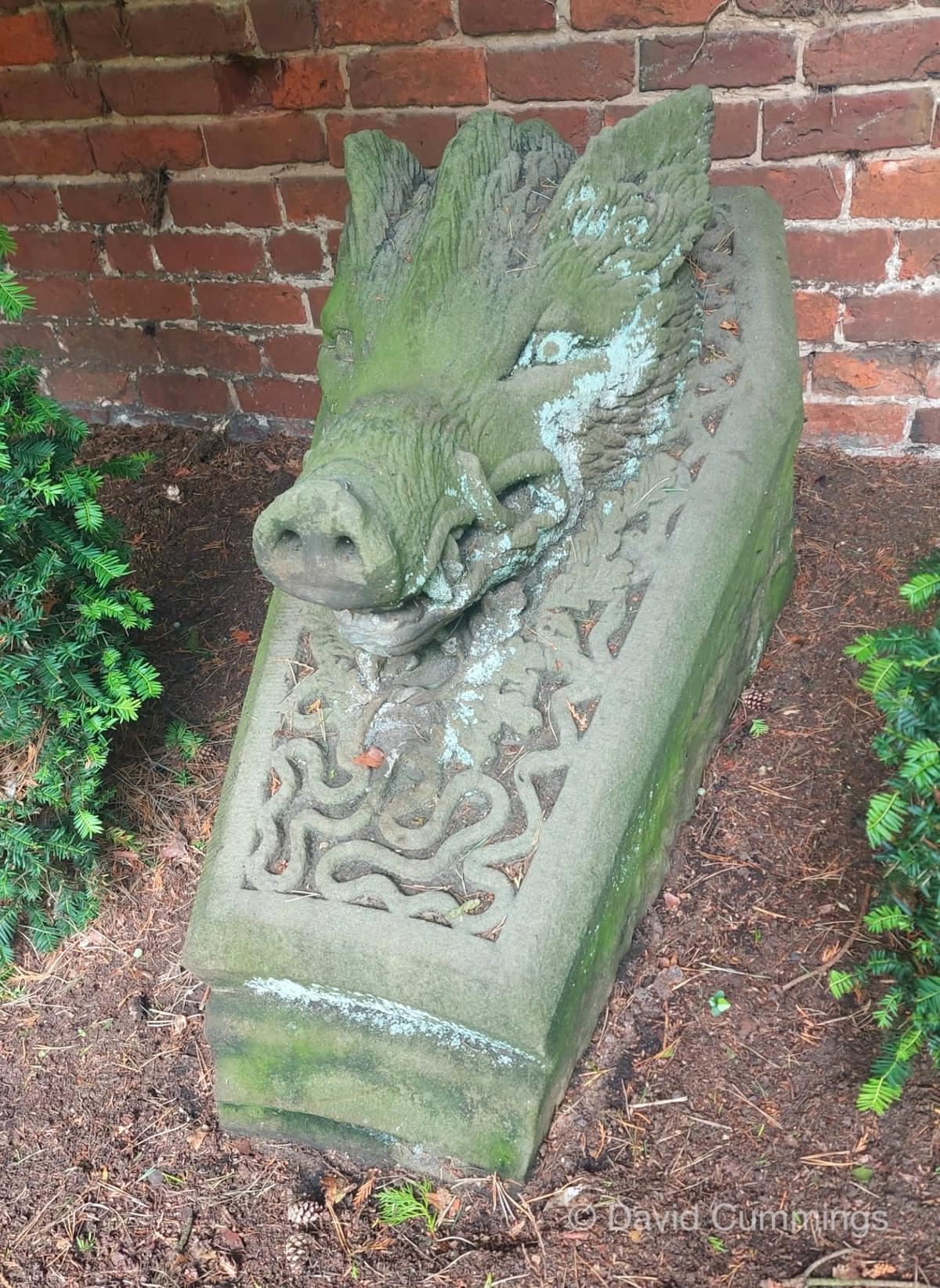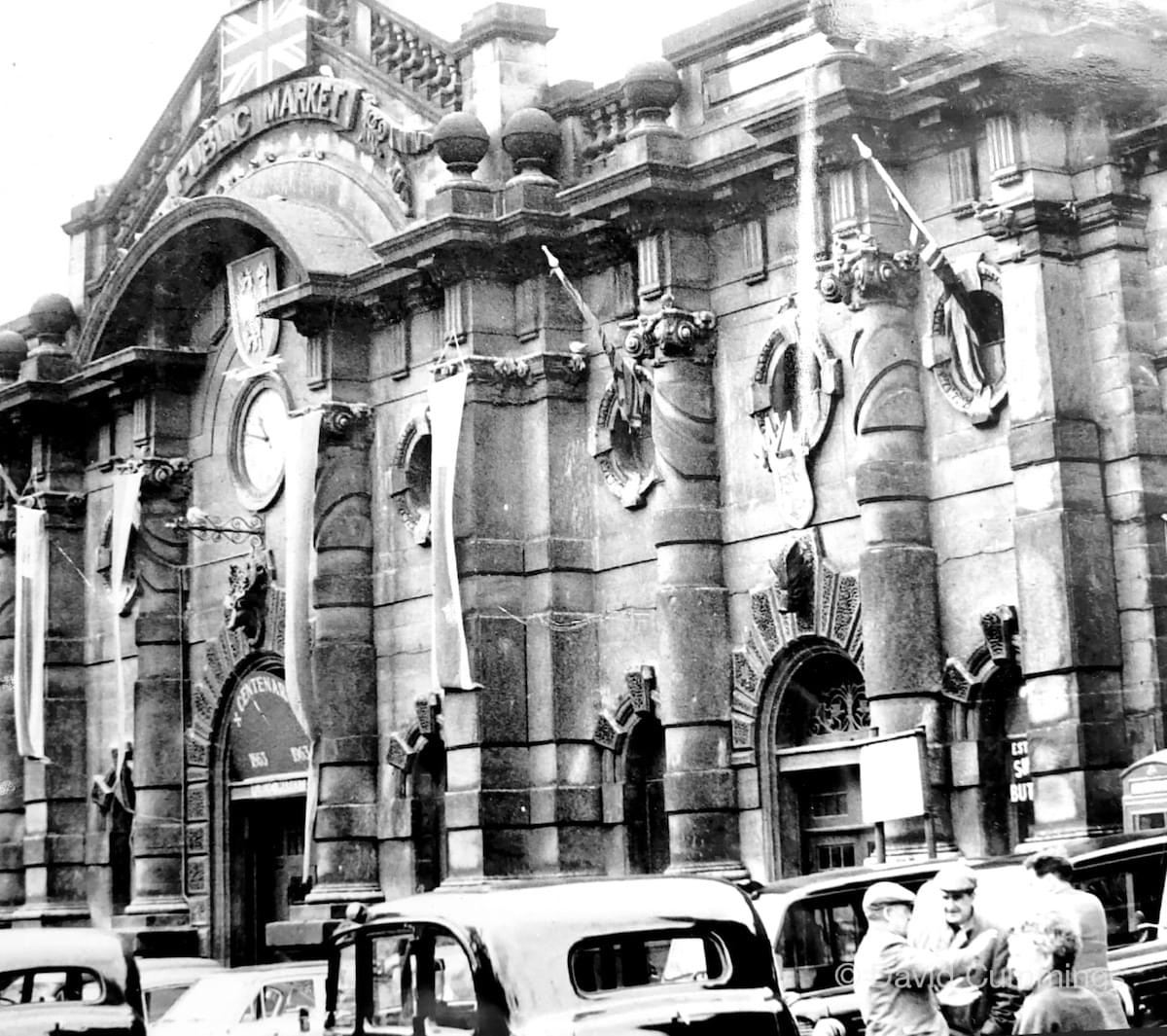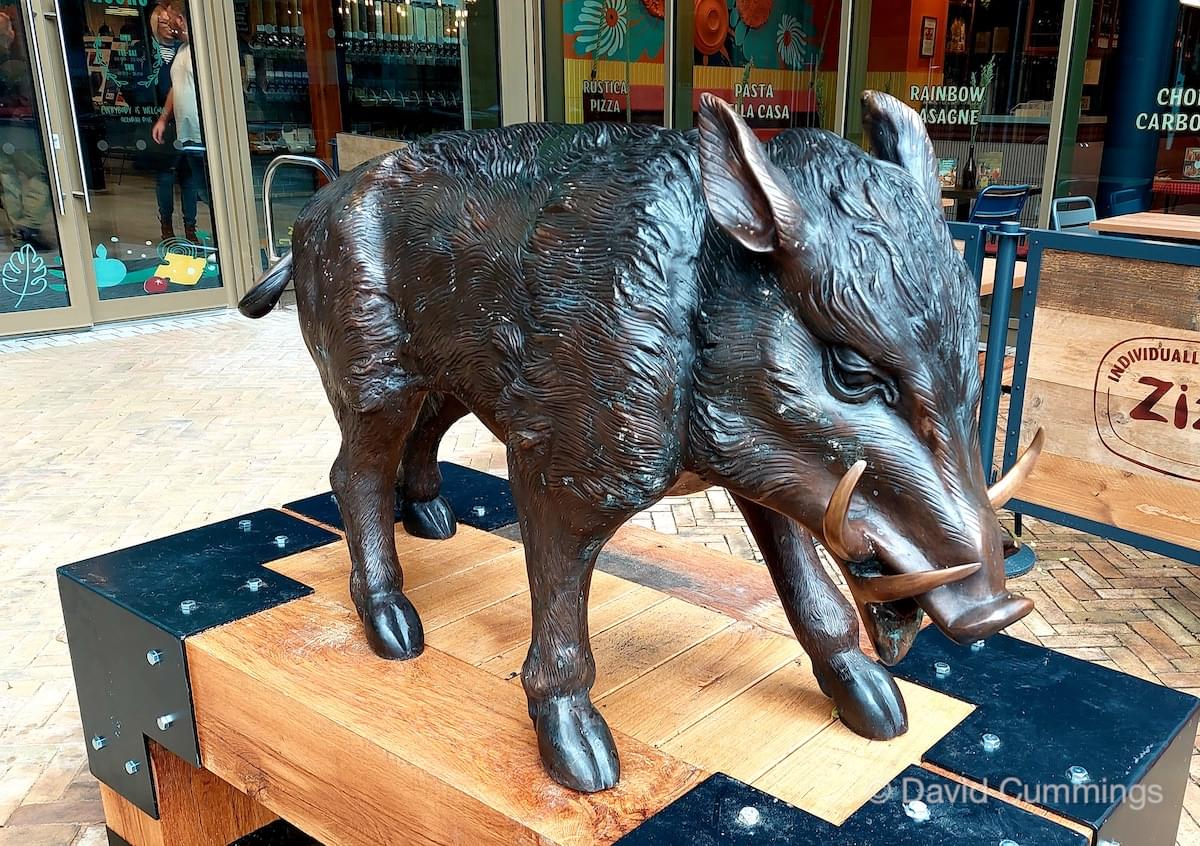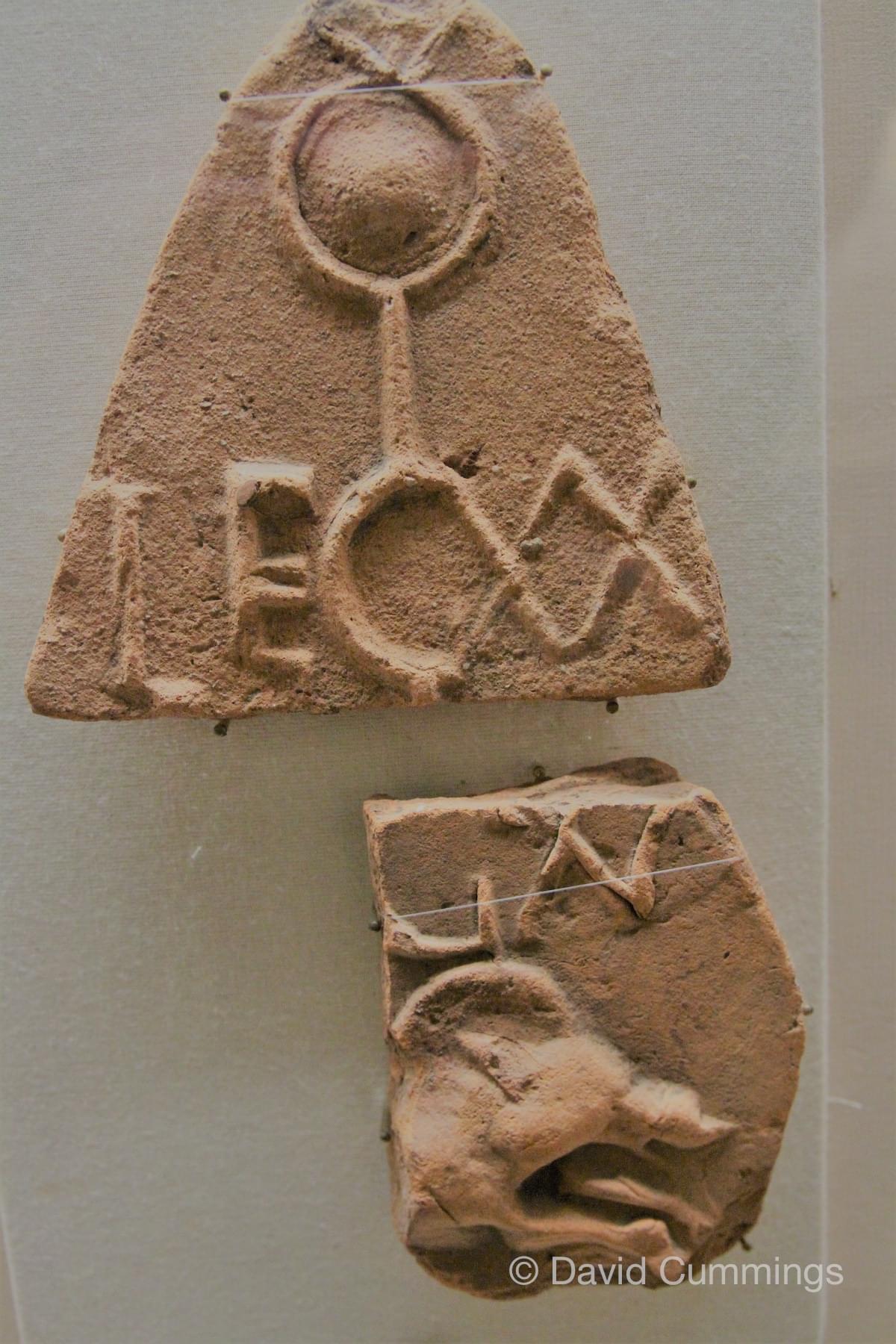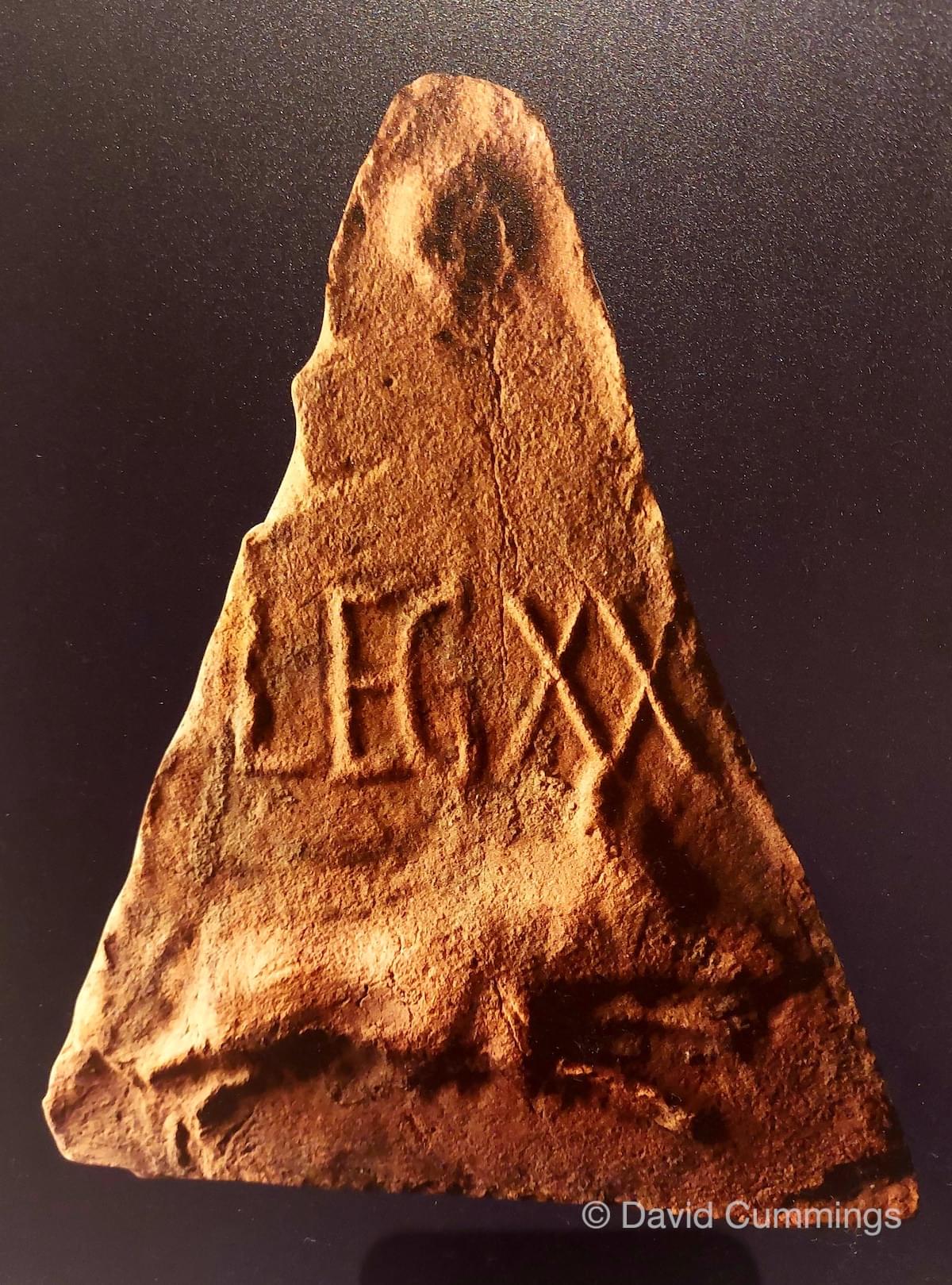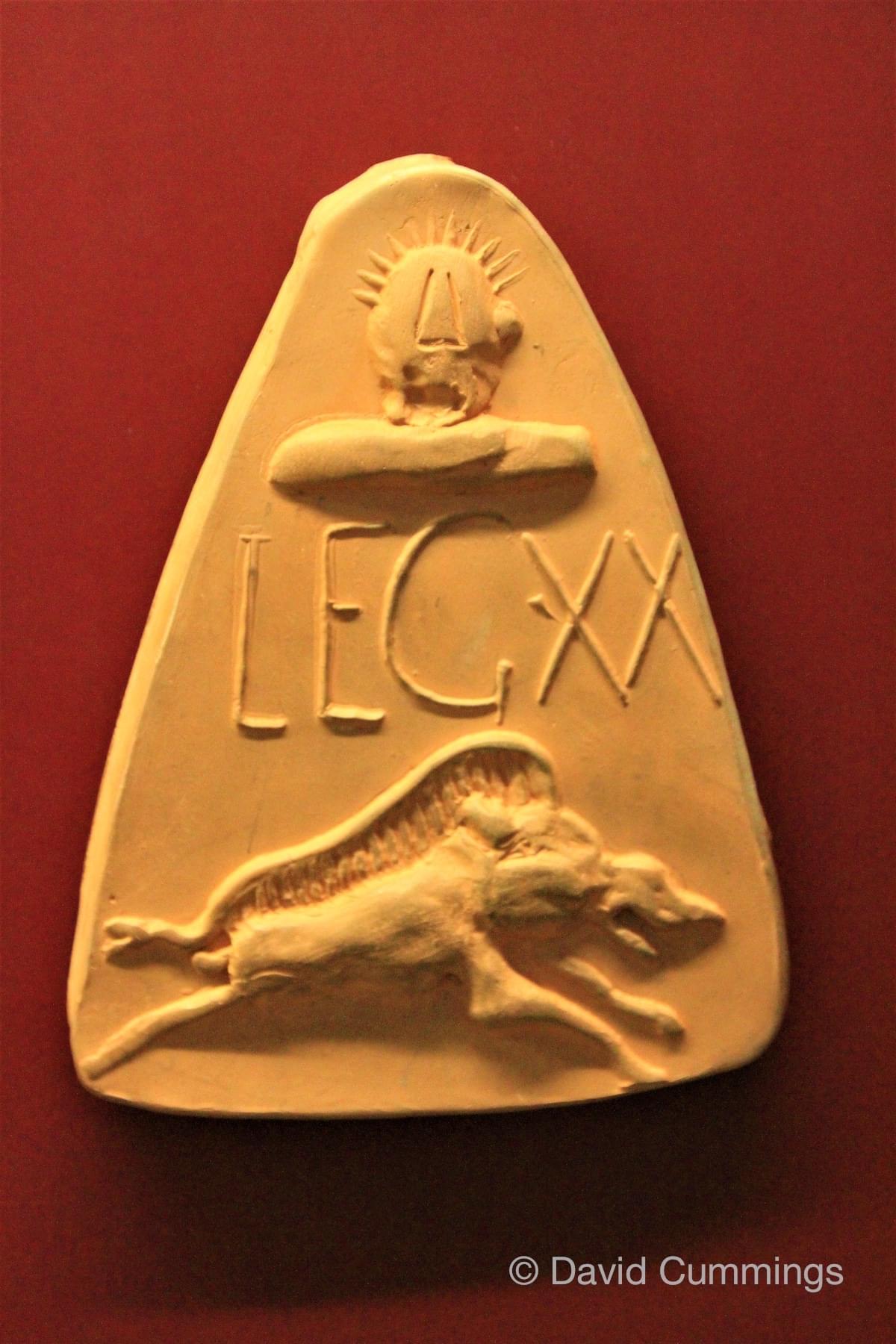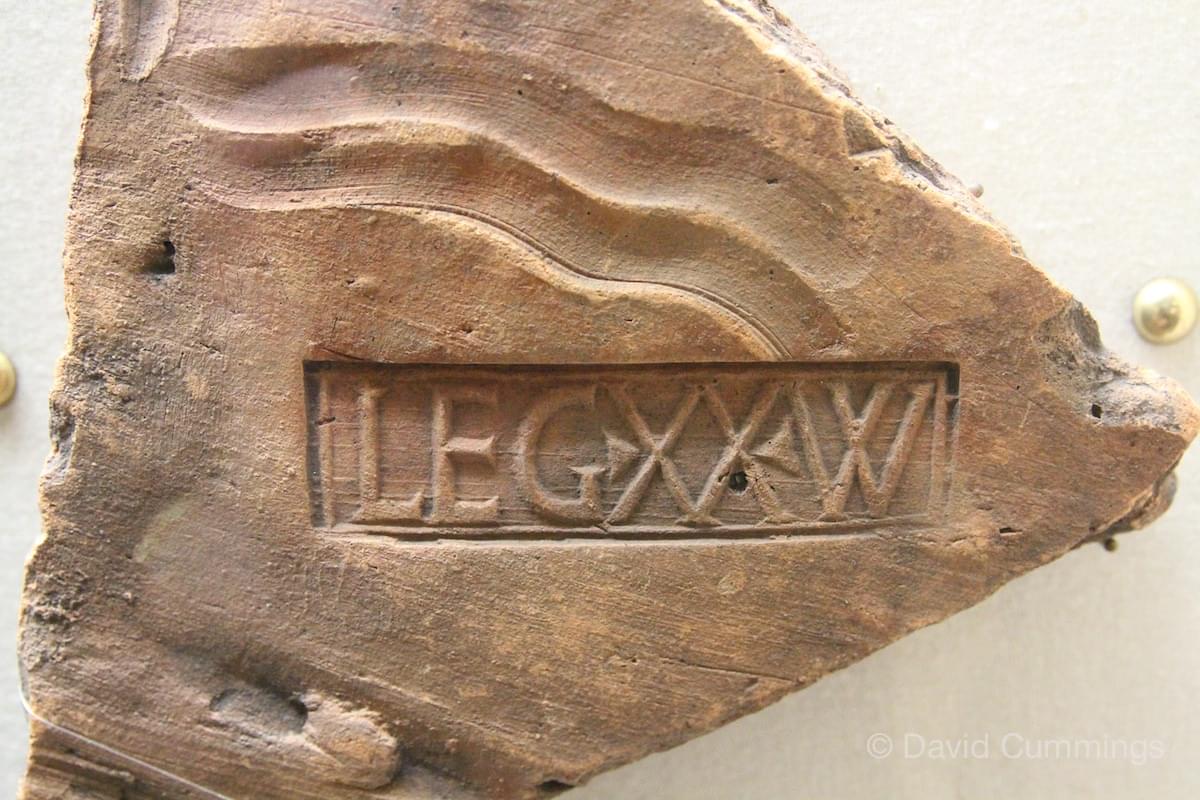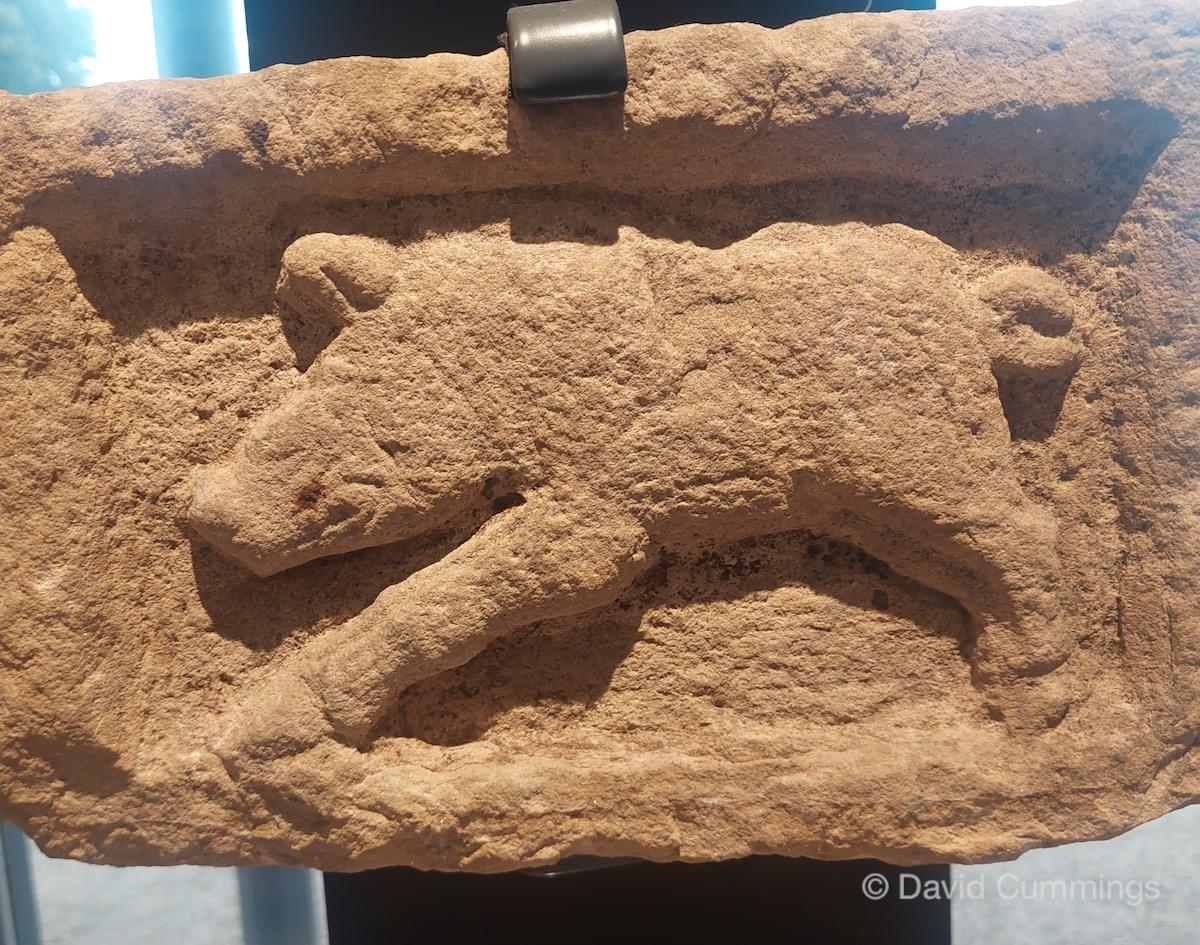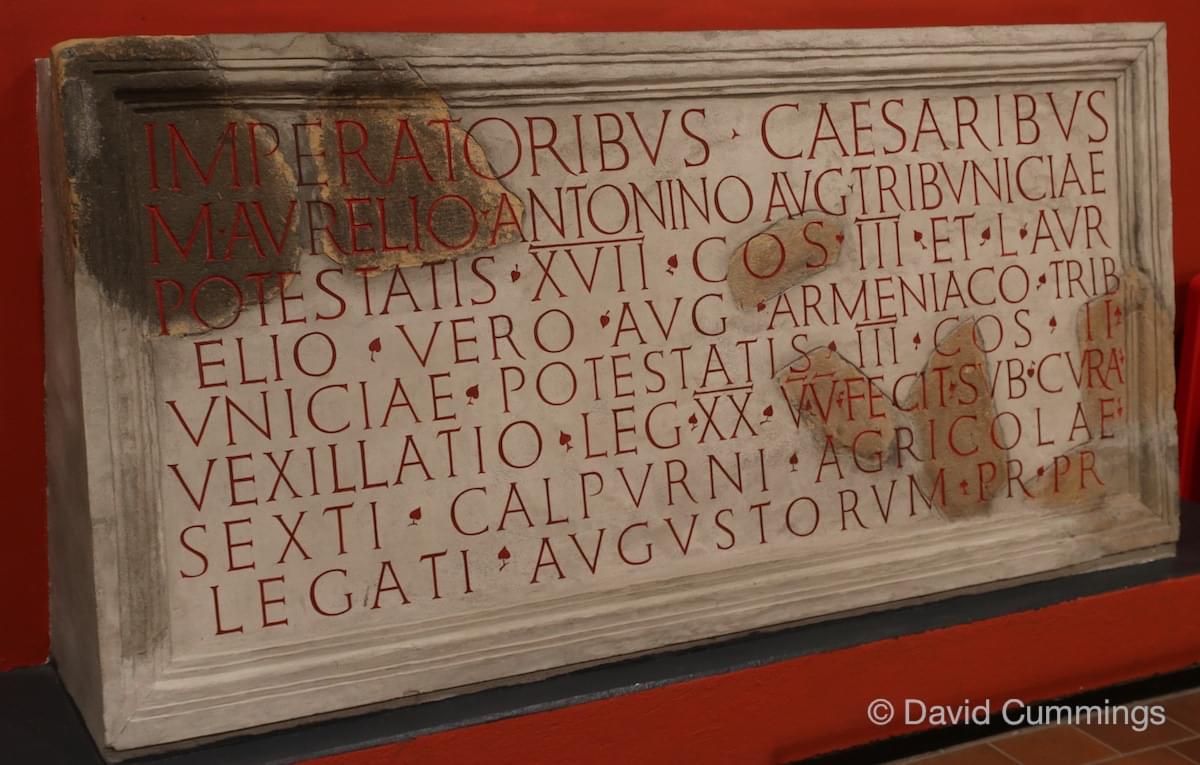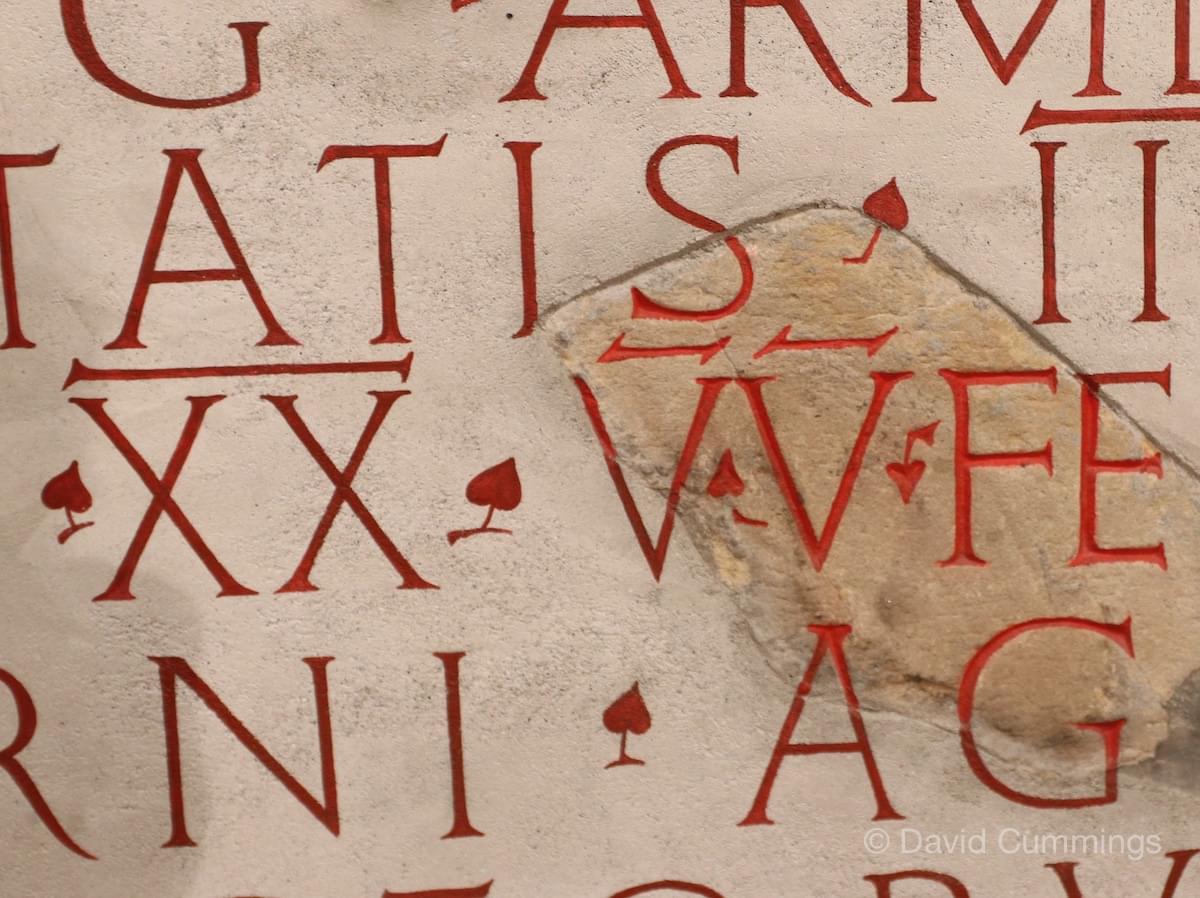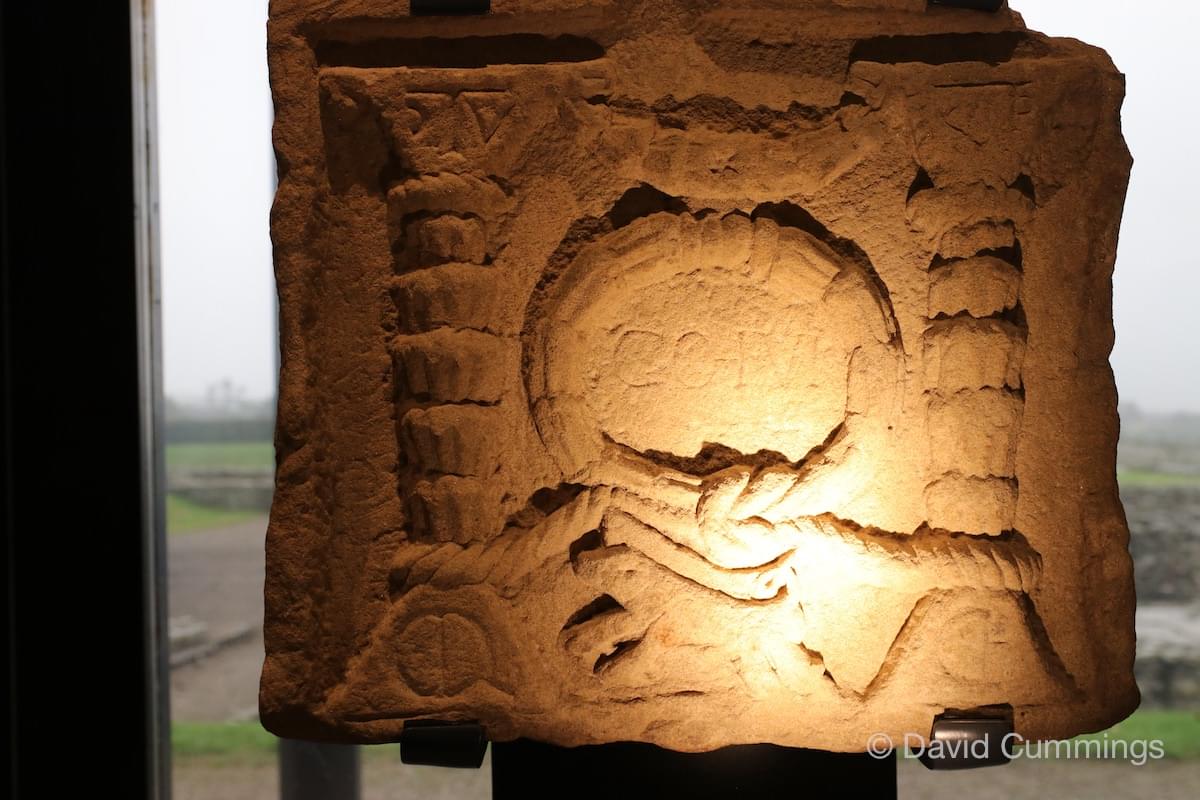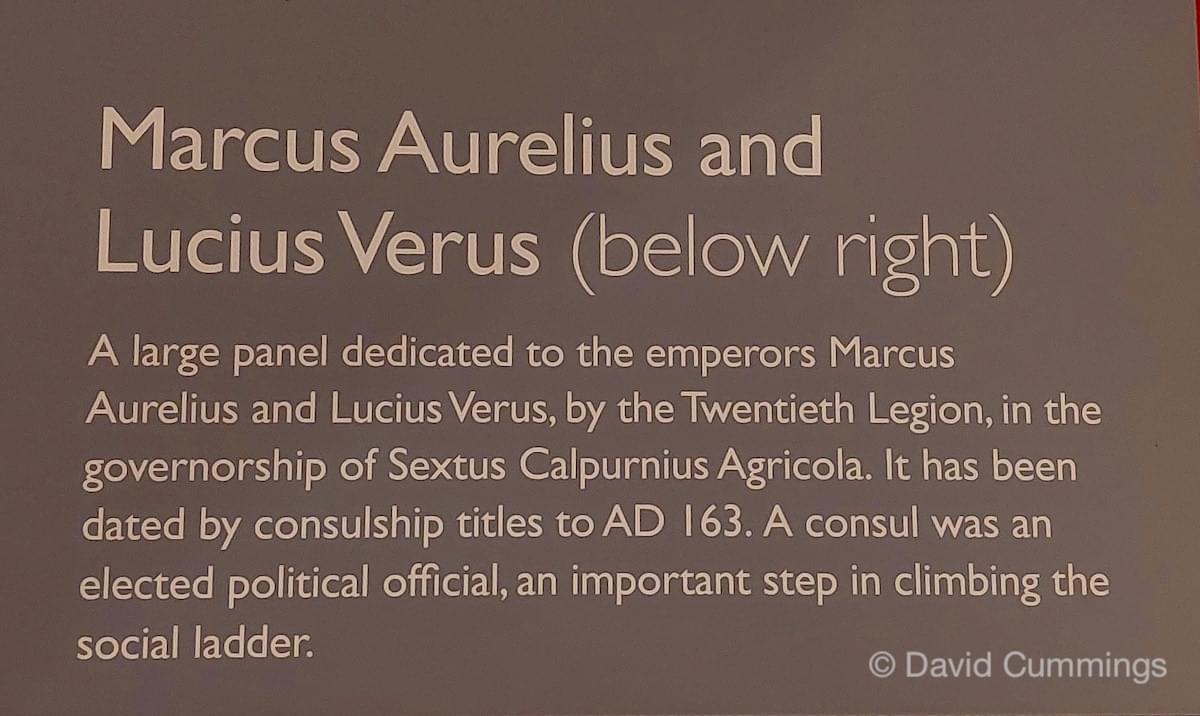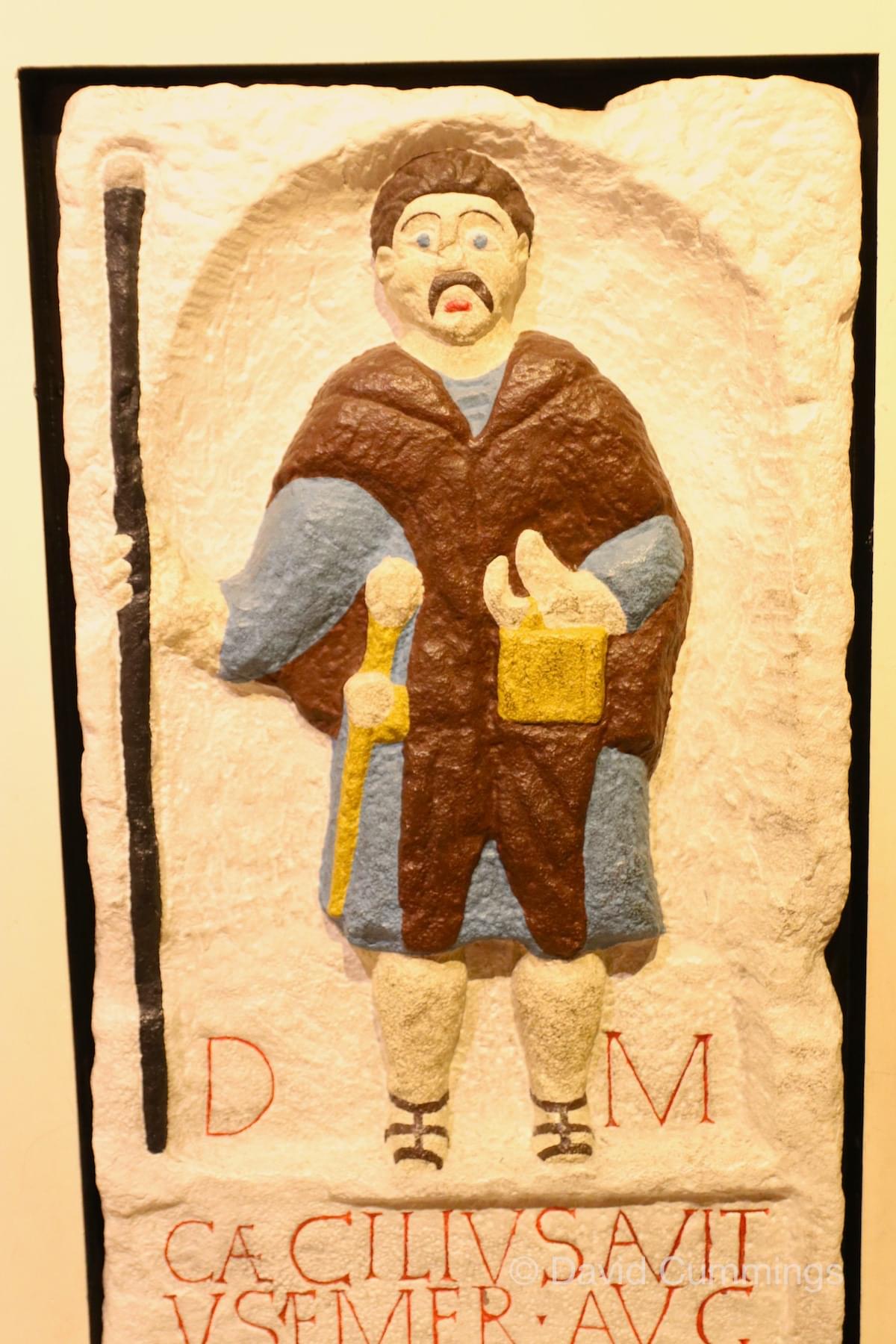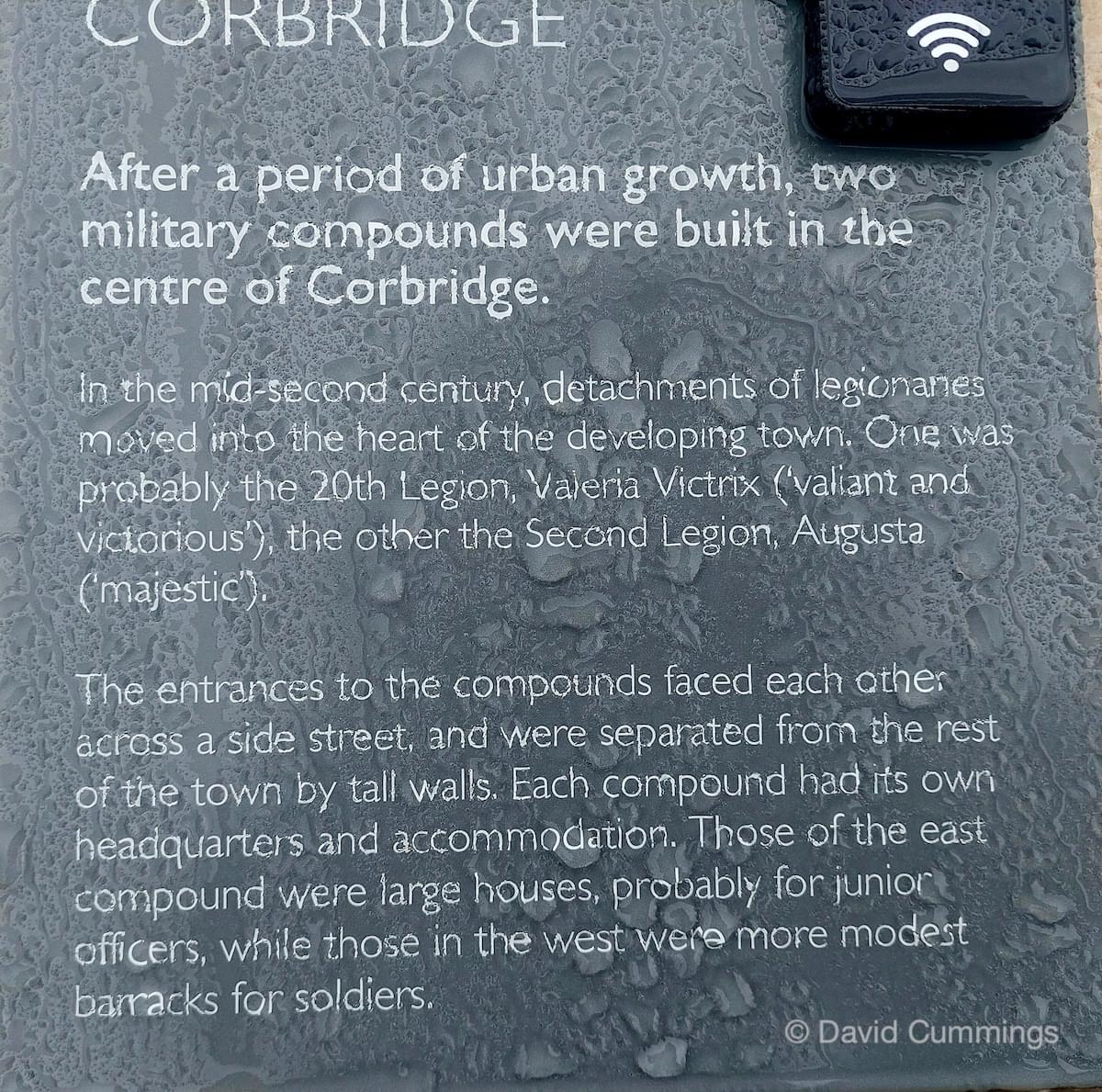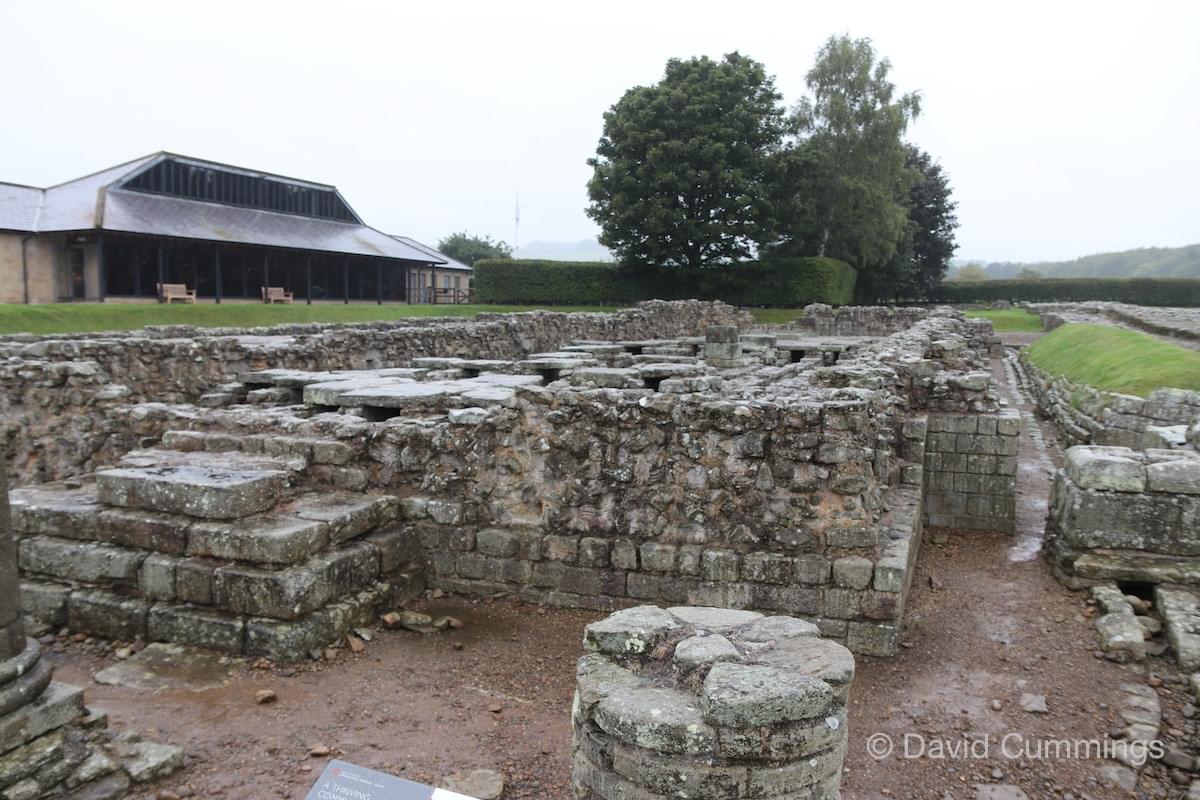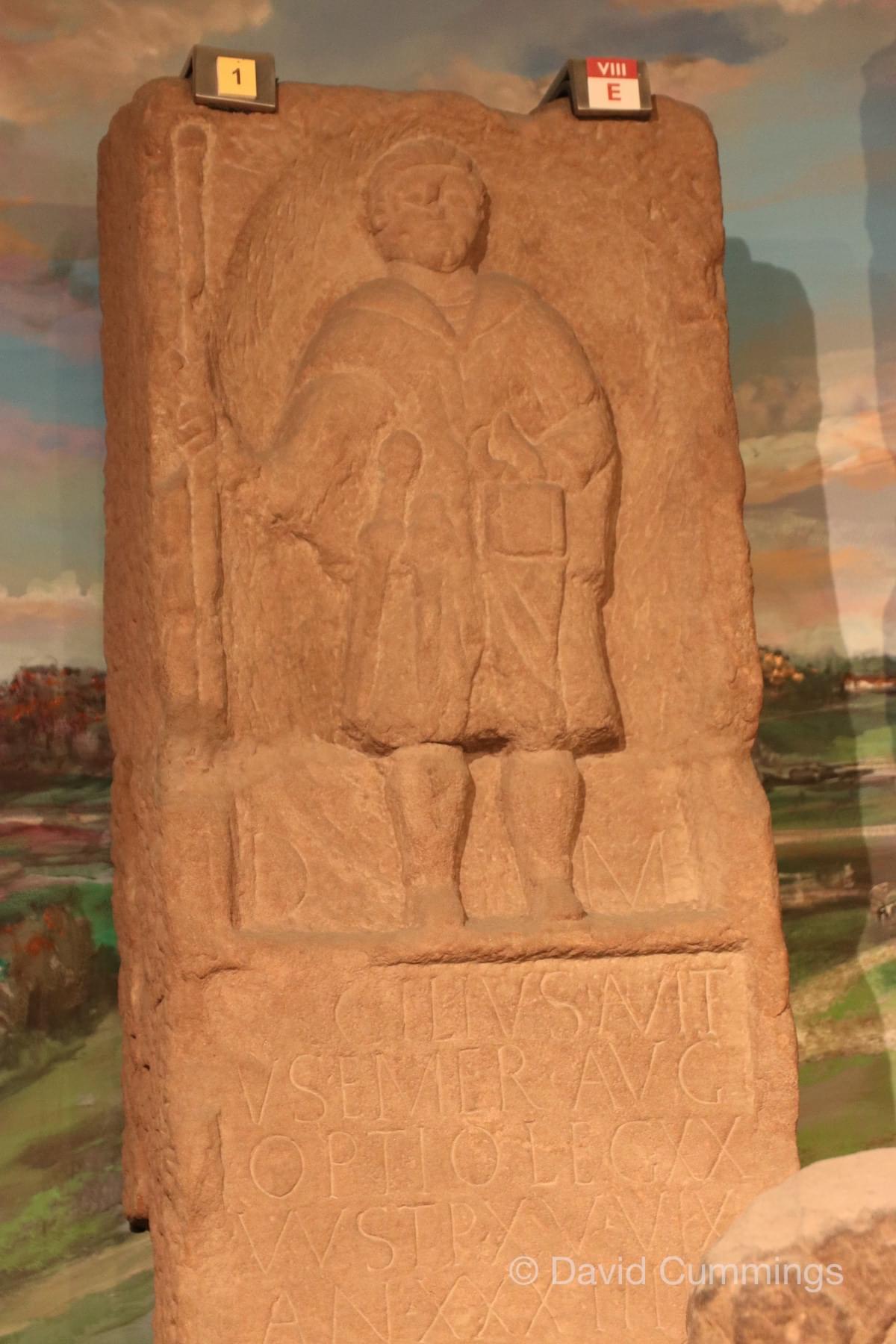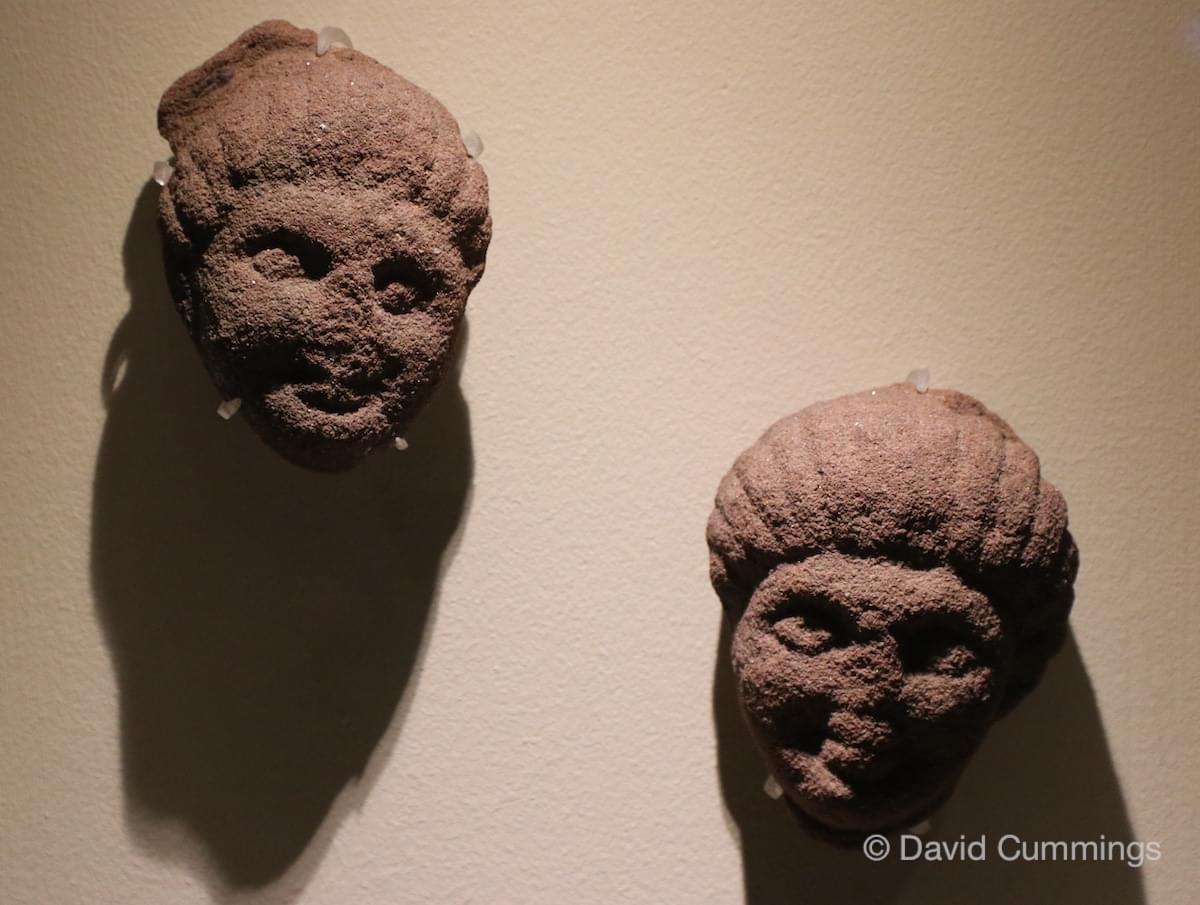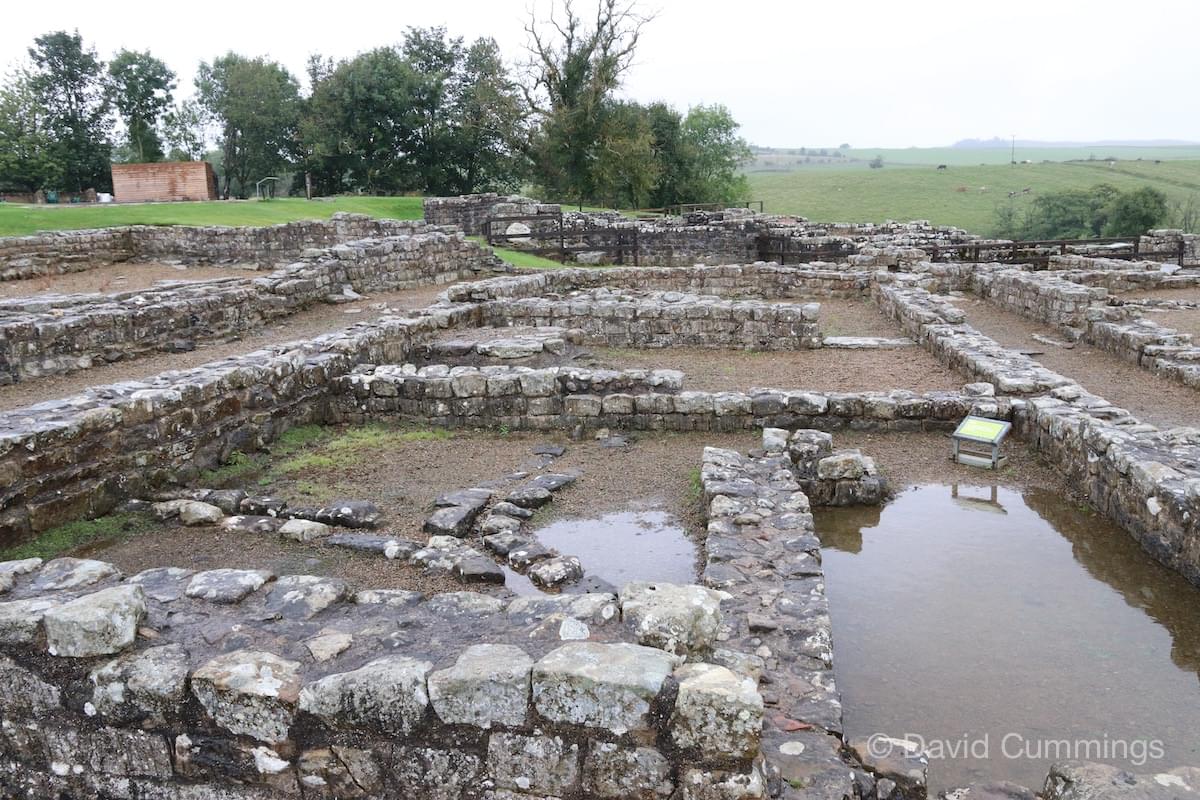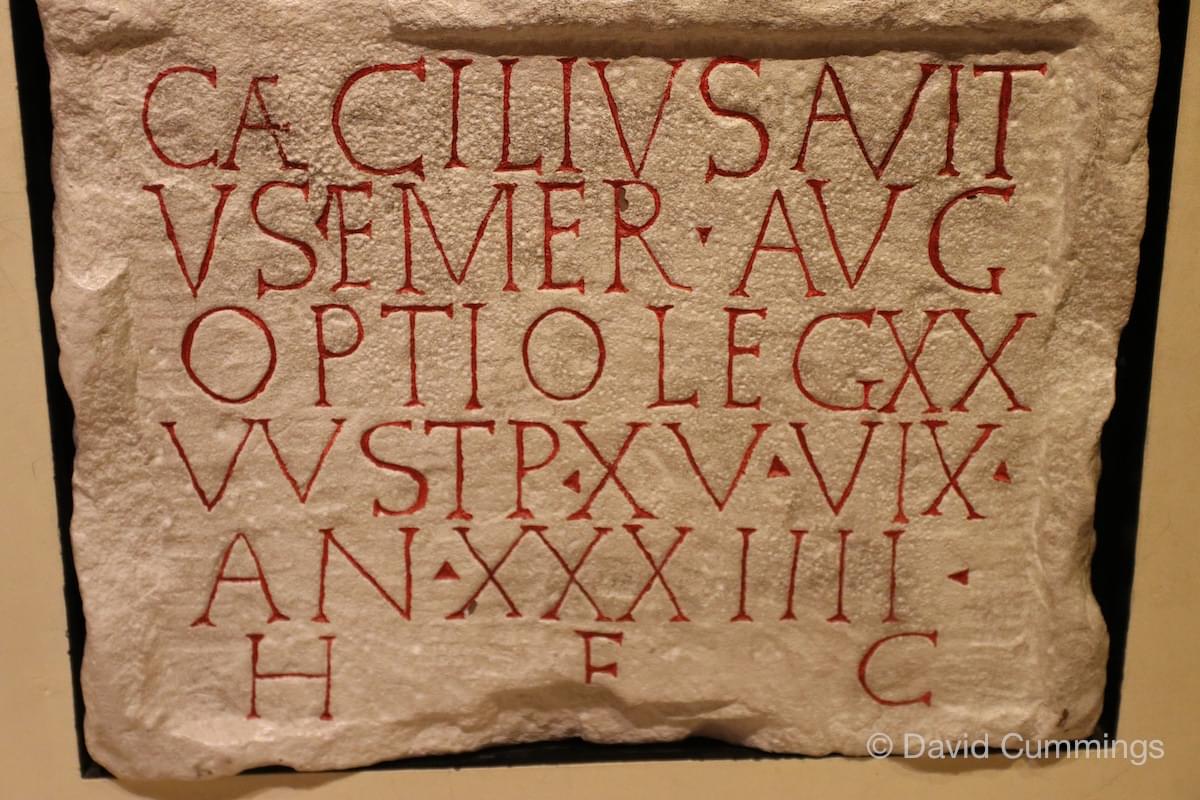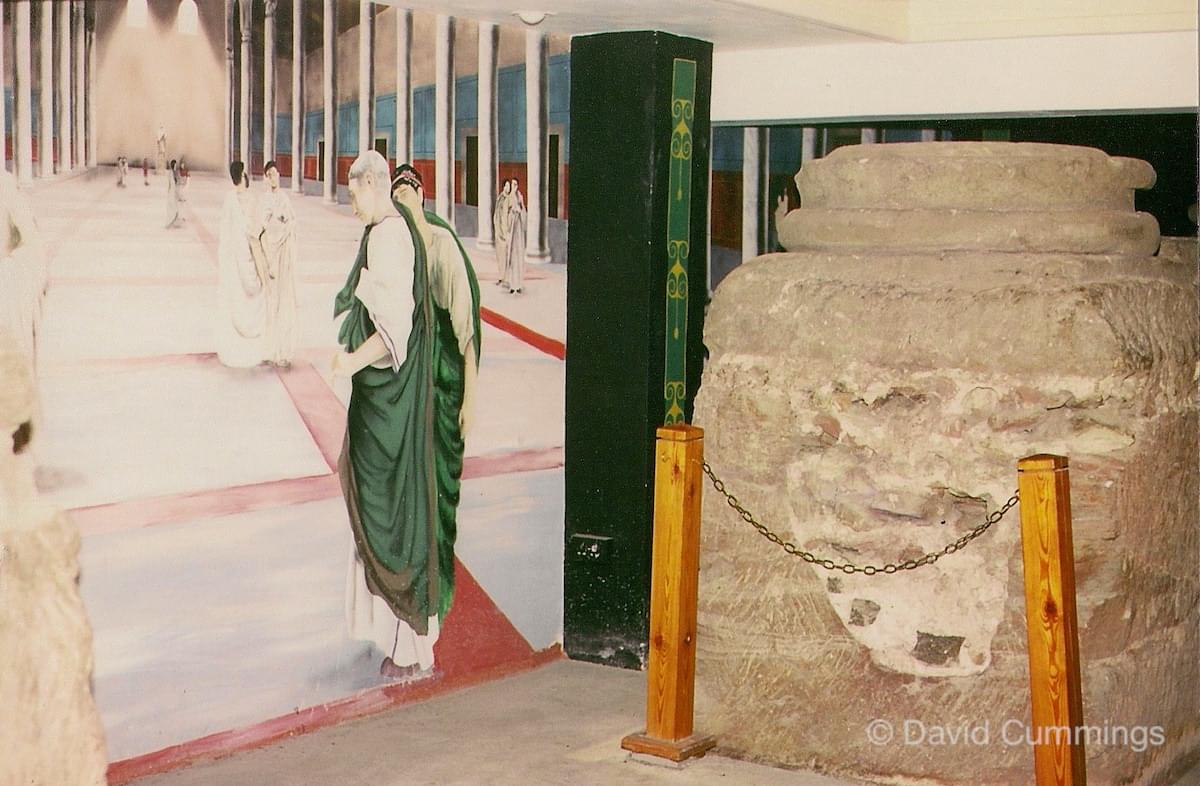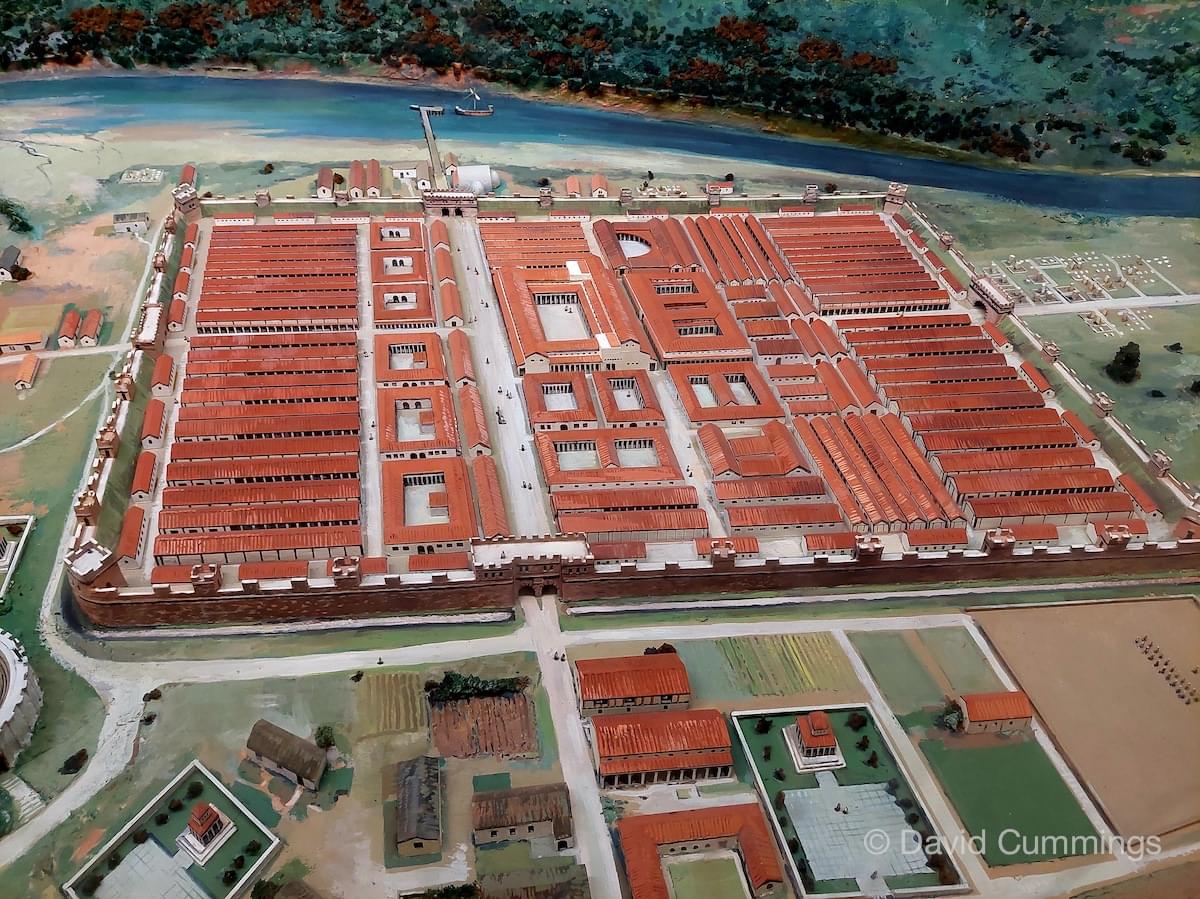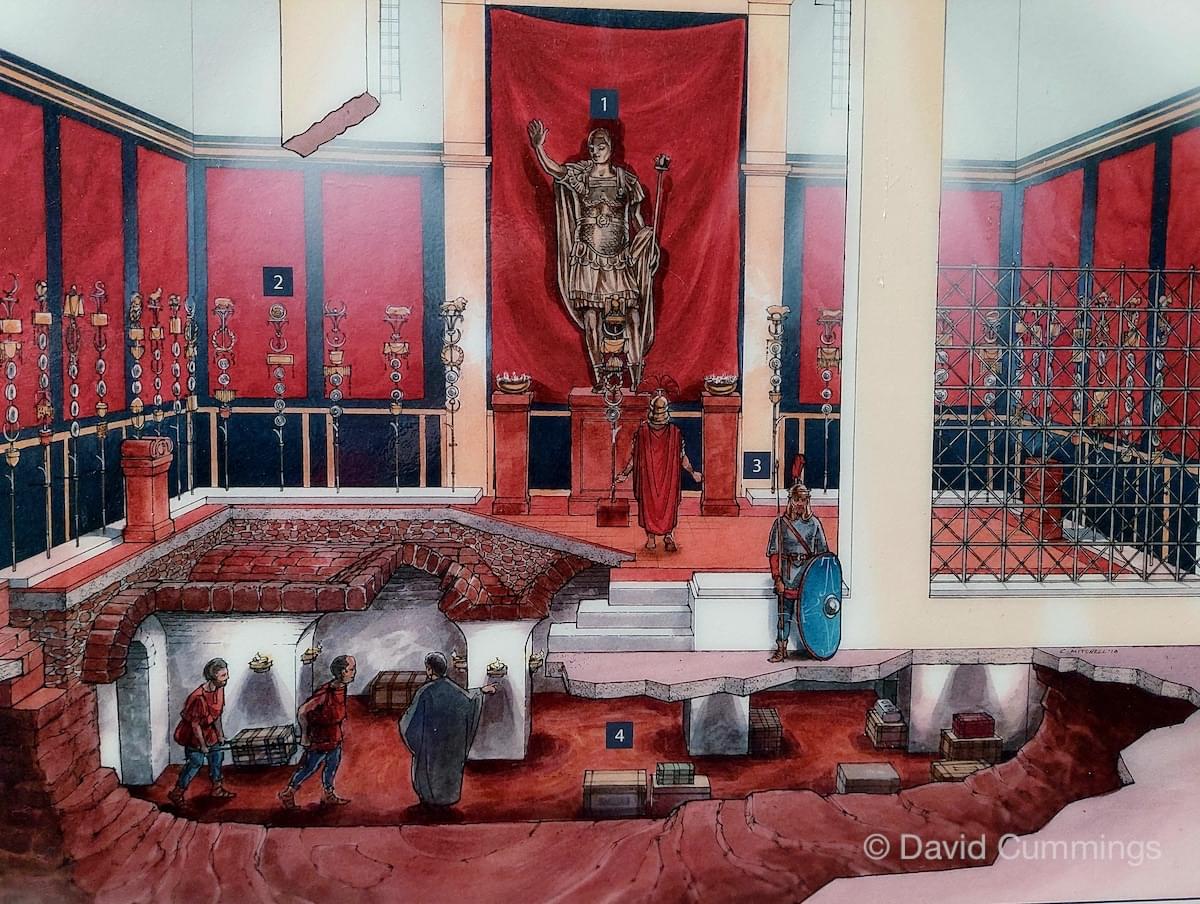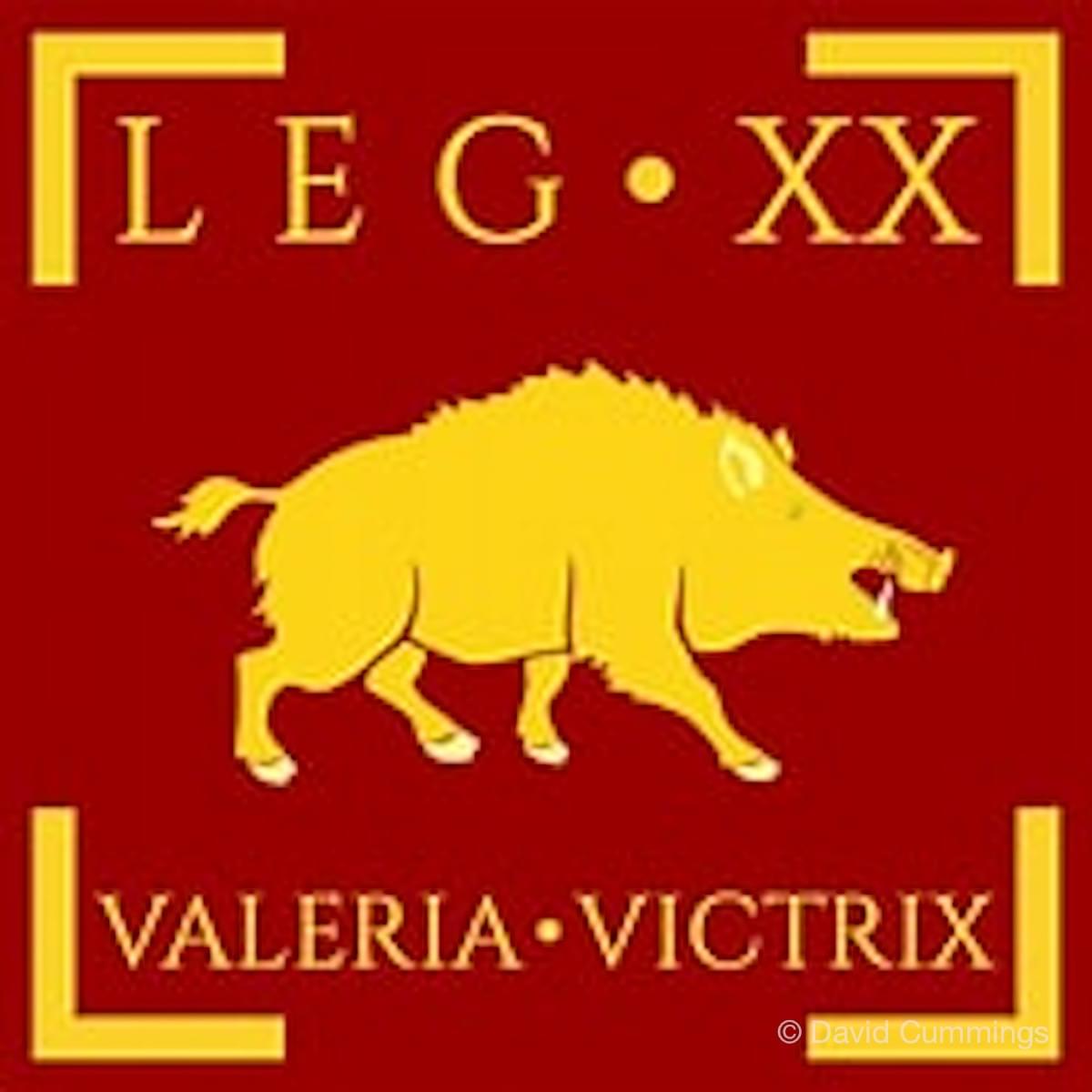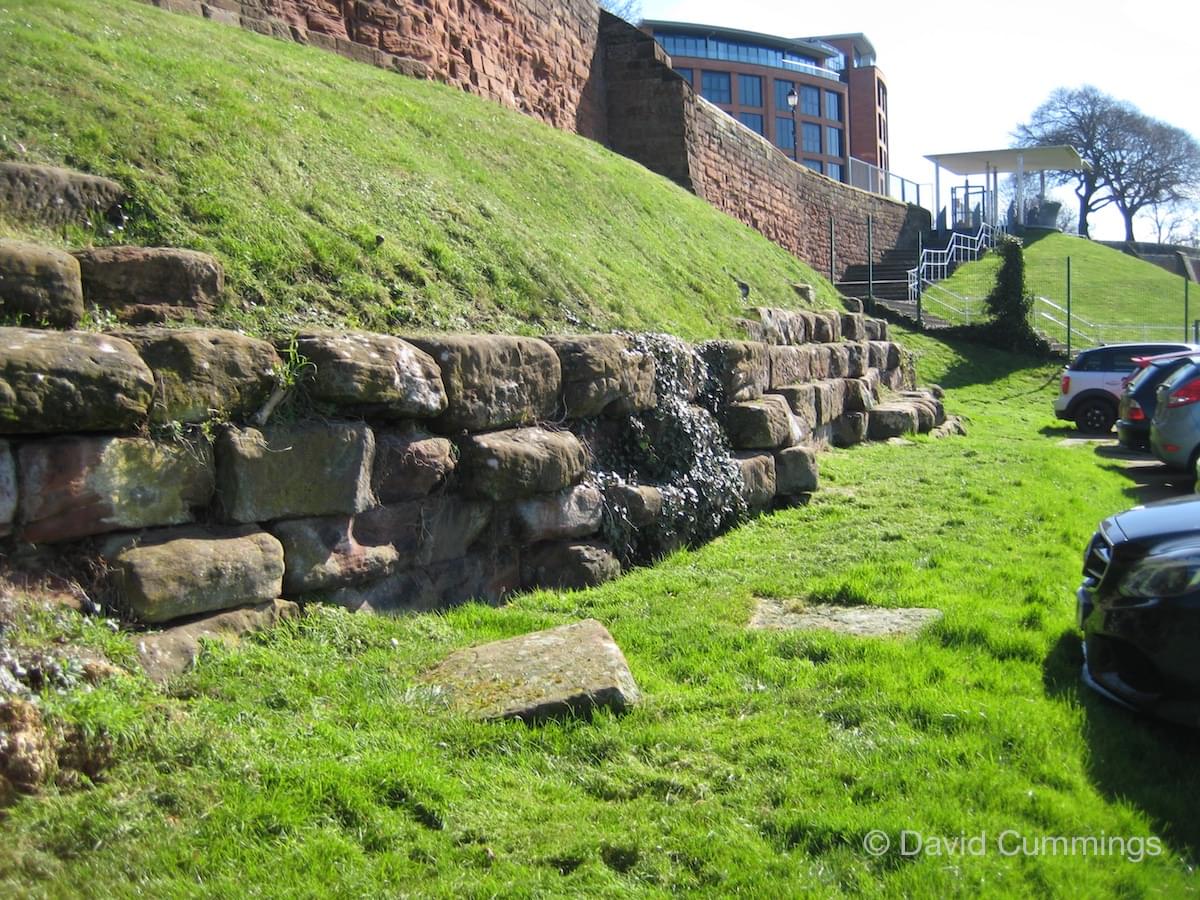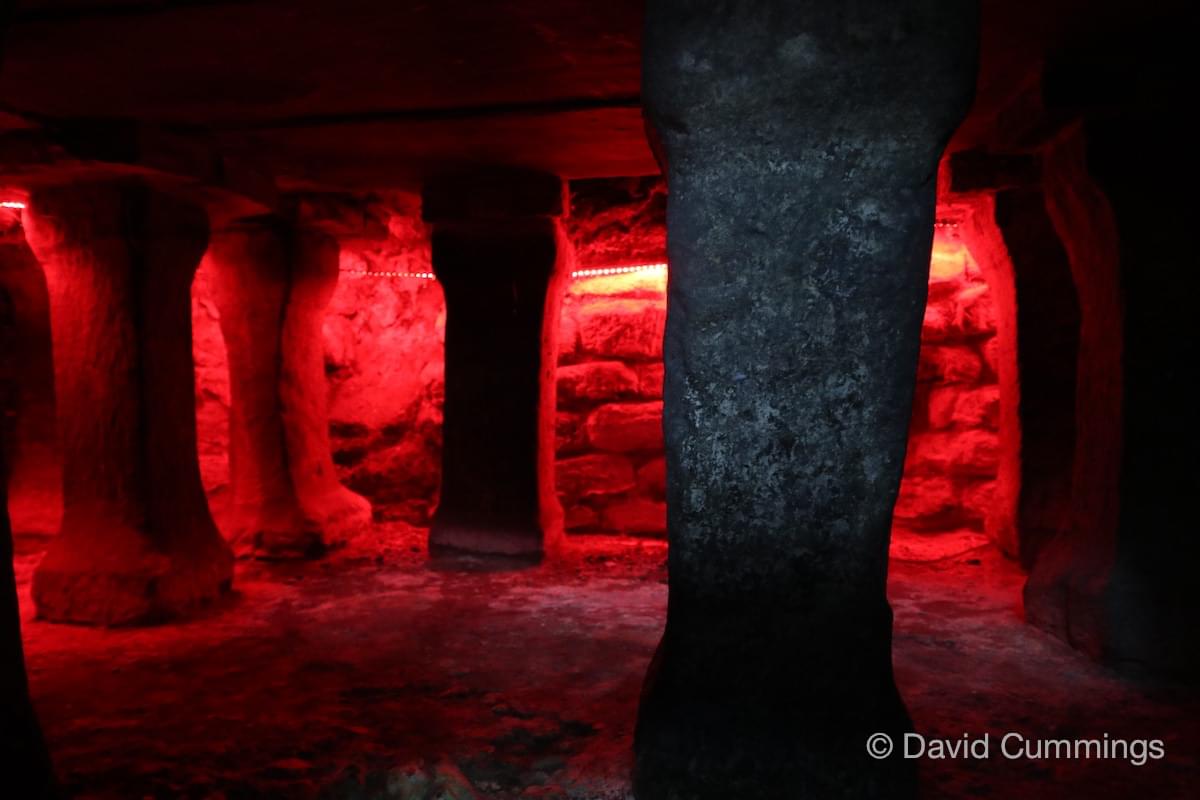
October - 2023
Following the Legion XX Valeria Vitrix

A few weeks ago I was taken to see a life sized stone carving of a wild boar, in a garden in the village. I somehow knew what it represented, as a wild boar was the symbol of the XX Legion, Valeria Vitrix, stationed in Deva, and a new bronze wild boar is situated outside the new Chester Market. The stone carving in the village can be seen in a photograph of the old Chester Market in 1860’s, and was probably acquired by the Cullimore Family when the old market façade was taken down. This story fascinated me, so I decided to find out more about Deva in Roman times and the fortunes of the XX Legion in particular.
It is probable that the first fortress in Chester was a wooden one, and constructed by the II Legion, around AD 43. It was rebuilt in stone circa AD 70-88, and was 20% bigger than any comparable fortress, a symbol of its strategic importance to the Roman Army. It had a garrison of 5,500men and 1000-1250 servants and slaves. Lead ingots and water pipes stamped with XX legion and found in Chester are dated AD 74. The lead being mined at Halkyn Mountain in nearby Flintshire. The XX Legion came to Deva from the Roman town of Wroxeter near Shrewsbury, and the II Legion took their posting there. At this time Deva was also known as the “City of Legions”
The Legion’s Story
XX VV was founded in 31 BC by Emperor Augustus, and was one of four legions that invaded Britain in AD 43. It was one of the legions that defeated Caractacus at the Battle of Caer Caradoc, and later in AD 61/61 helped put down a revolt by Boudica, and took part in an invasion of Anglesey. In Ad 50 they were stationed at Camulodunum (Colchester), and then moved to Colonia Glevum (Gloucester) and then Isca (Exeter). The next move was to Usk (Burrium) the earliest fortress in Wales, whose Military Commander was Aulus Didius Gallus.
By AD 66 they were transferred to Viroconium (Wroxeter) which was their base before transferring to Deva. Between AD 78-84 they took part in a campaign in Northern Britain and Caledonia* but by AD88 they had returned to Deva, where they were based for another two centuries.
* A distance slab stamped XX Legion was found at Cleddons, near to the town of Dunochter, a fortlet on the River Clyde close to the Antonine Wall, but this wasn’t built until AD 142 to link the Firth of Clyde to the Firth of Forth. They also built the base at Inchtuthill, near Perth, Scotland.
The XX Legion were involved in the construction of the Stangate, a Roman Road linking Carlisle to Wallsend (Newcastle) via Corbridge, which runs immediately below and almost parallel to Hadrian’s Wall. They were involved in the building of the wall, and cohorts were based at various times at the fortresses of Vindolanda and Corbridge. We visited the Roman site of Corbridge, a large town on the crossings of two major routes a few weeks ago, and were delighted to find many references in stone, to the XX Valeria Vitrix Legion and two wild boar stone carvings.
The Legion were pulled out of Britain in AD 407 by Constantine III, but during their stay were such an influence on the population and in the construction of fortresses, roads and walls.
We are fortunate in Chester to have a large number of tombstones of Roman Army Officers, wives and even in one case children. These give an amazing amount of information, and I’ll share some of this now A list of some names of men serving in Deva, together with wives and children, and a number of the civilians working for them.
Legate: Titus Pomponius Vettonianus
Legate’s Orderly: Titinius Felix
Prefect: Marcus Aurelius Alexander
Governor: Tiberius Flavius Virilis
Legionaries: Lucius Junius Abenus, Geminius Mansuetus, Lucilius Sabinianus,
Cassius Secundus, Lucius Vanius, Julius Vitalis
Chief Centurian: Sextus Flavius Quietus
Tribune: Marcus Aurelius Syrio
Senior Centurian: Lucius Bruttius
Centurians: Claudius Augustanus, Flavius Betto, Burricus, Julius Candidins,
Olicius Libo Eto. Malins Crassus, Gaius Danitianus, Julius Florentinus, Lucius Gartulicus, Lucilins Ingenuus, Olicius Libo, Atilus Maior, Sextius Marcianus, Valerius Martialis, Terentius Magnus, Marcus Nepos, Refidius,
Ferronius Vegetus, Titius Claudius Vitalis.
Centurians Deputy: Caecilius Avitus
Veteran: Lucius Bellicianus Vitalis
Bearer of Imperial Effigy:Aurelius Diogenes
Standard Bearer: Titus Flavius Valerianus
Record Clerk: Gaius Valerius Iustus
Doctors: Antiochus, Hermagoras.
Trooper: Aurelius Lucianus
Wives: Coccia Irene, Julia Similina, Aelia Augustina, Curantia Dinysia
Veconia Nigrina, Fesonia Severina.
Children: Marita & Resista
Civilians: Atilianus, Antiatilanus & Protus (brothers) Flavius, Callimorphus &
his son Serapion, Dexter, Egnatius, Pompeius Optatus, Seranus
Thesaeus, brother of Flavius Callimorphus, Aurelius Timothaeus. And
Gaius Valerius Victor.
The details from one tombstone
A tale of Tiberius, Legionary Governor of XX Legion.
“To the spirits of the departed, Tiberius Flavius Virilis”
Centurian of the II Legion Augusta
Centurian of the XX Legion Valeria Vitrix
Centurian of VI Legion Vitrix
Centurian of XX Legion
Centurian of III Legion Augusta
Centurian of III Legion Parthica
Severus own commanding the II Century of Hastatain, of cohort 9, a Legion serving in Rome.
He lived 70 years, and served the army for 45 years. Lollia Bodica, his wife, and Flavius Victor & Victorinus his sons and heirs had this made.
He served in Britain, Africa and Italy, and was buried in Algeria.
References:
Roman Chester: City of the Eagles David J P Mason
Chester Grosvenor Museum
Roman Corbridge: English Heritage
Vindolanda: A Roman Frontier Fort on Hadrian’s Wall Robin Birley
The Vindolanda Guidebook: Dr Andrew Birley Vindolanda Turst
Ancient Warfare - Vol XVI Issue 5 The Roman Imperial Legions.
-
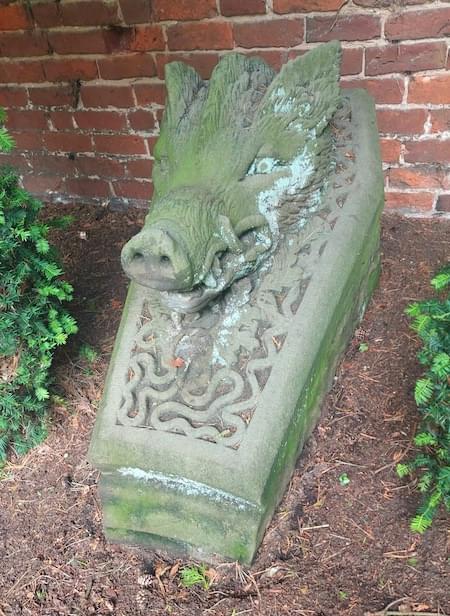
-
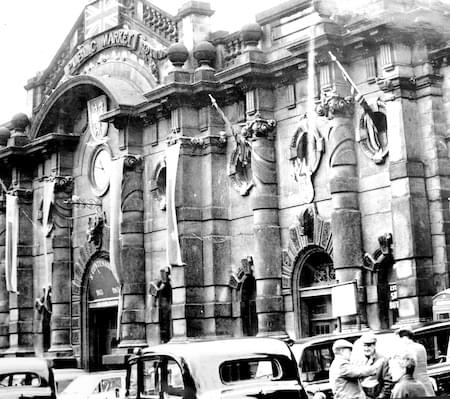
Chester Old Market with the boar on the archway
-
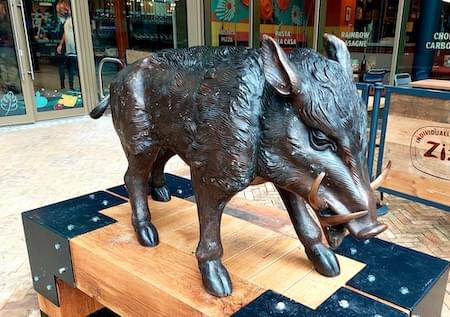
Chester Market
-

XX Legion roof tile
-
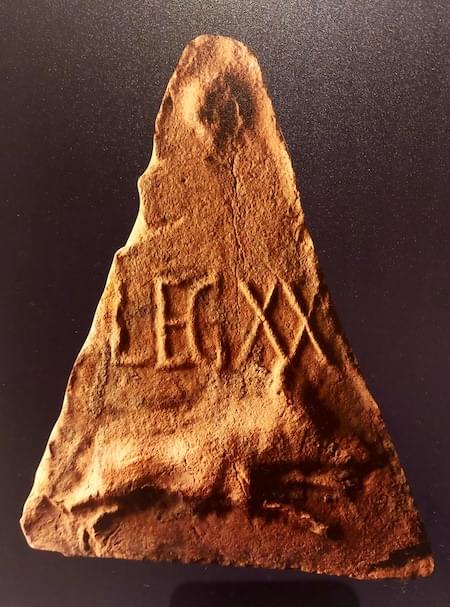
XX Legion emblem
-
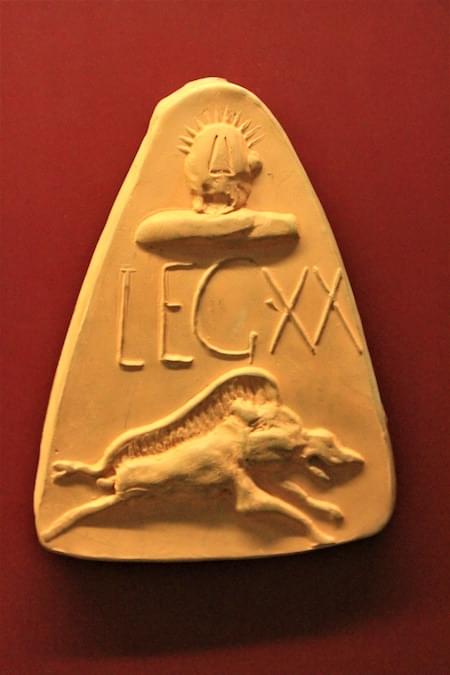
Replica roof tile XX Legion
-
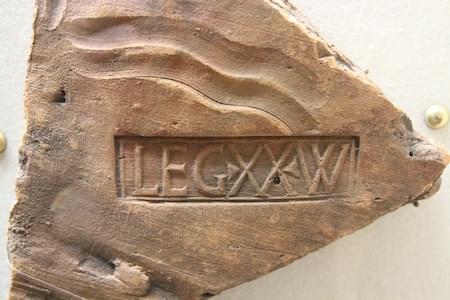
XX Legion Mark in pottery
-
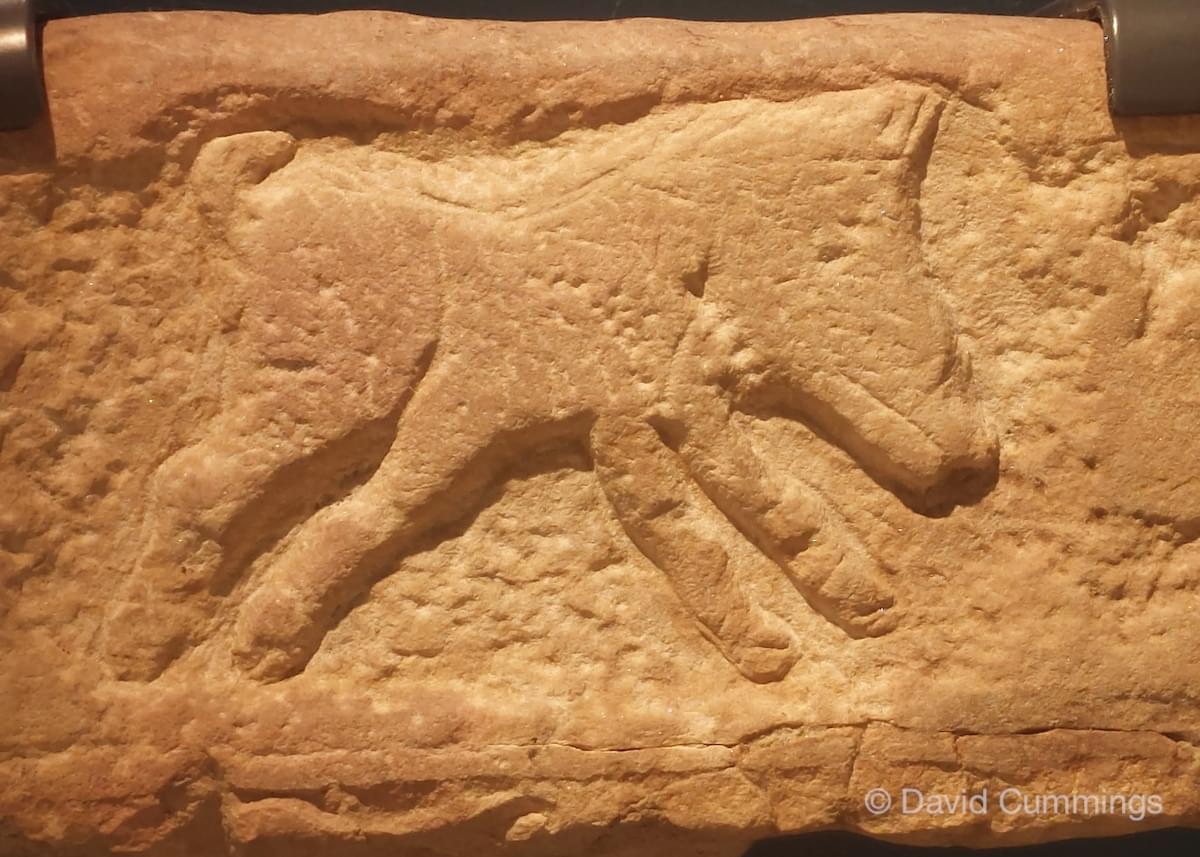
Boar symbol at Corbridge
-

Boar symbol at Corbridge
-
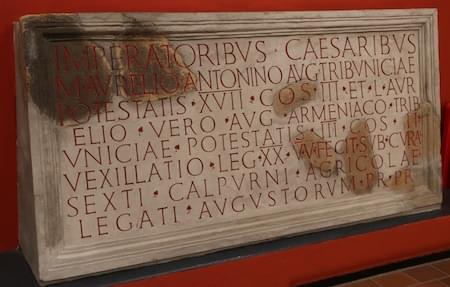
Plaque at Corbridge
-
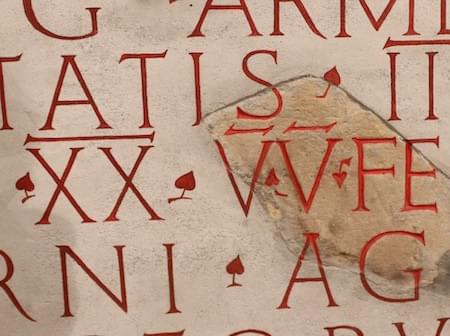
XX VV inscibed on a panel
-
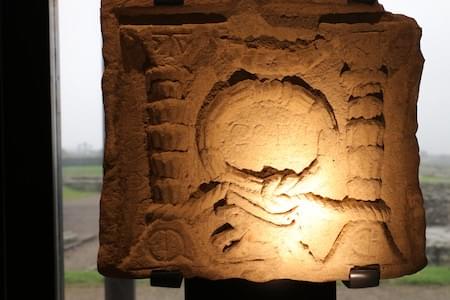
Dedication to cohort of XX Legion at Corbridge
-
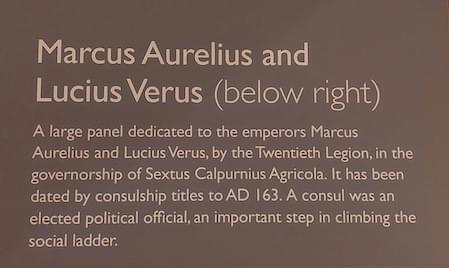
Descriptive panel at Corbridge, Northumberland
-
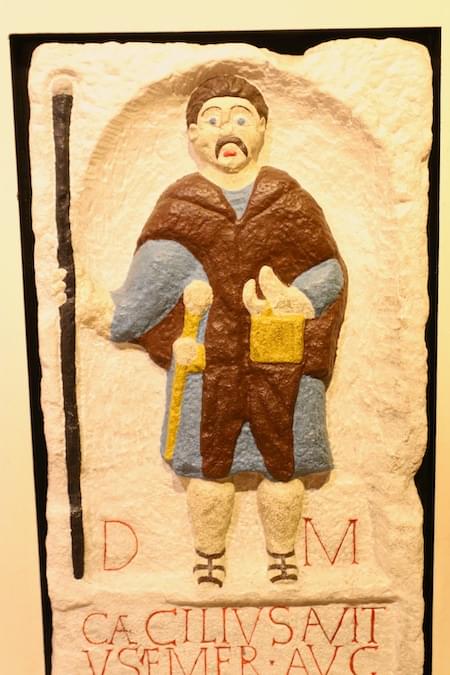
Coloured tombstone at the Grosvenor Museum in Chester
-
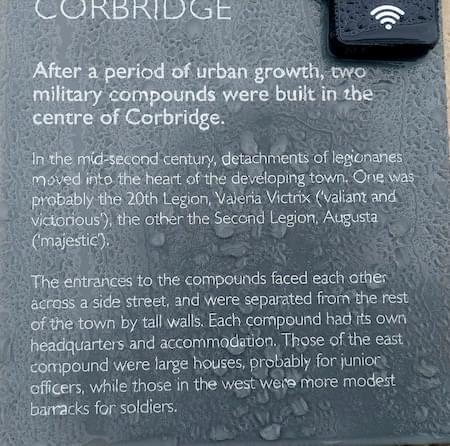
Evidence od the XX Legion at Corbridge
-

Corbridge in Northumberland today with the Museum
-
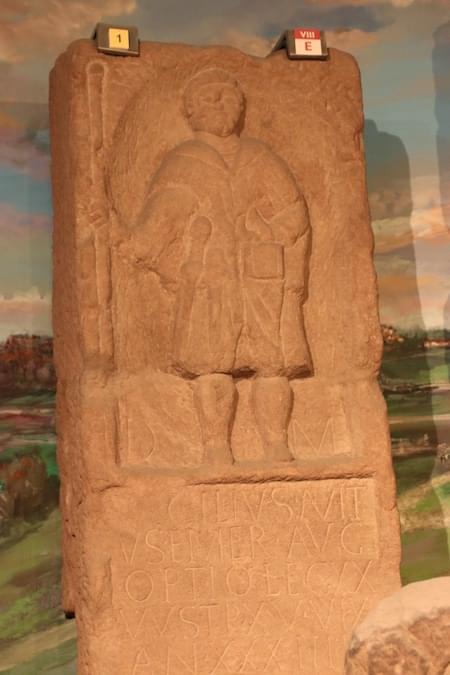
The actual tombstone of Caecilius Aviticus
-
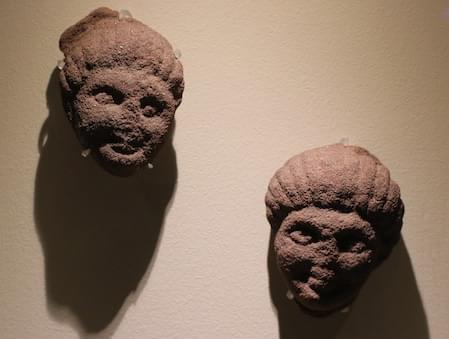
Marita & Resista Images from gravestone
-
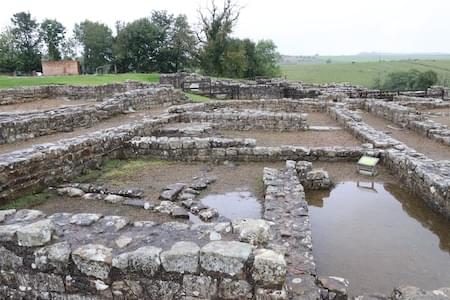
Vindolanda today. Butchers Shop on main street
-

Description on a Roman Tombstone
-
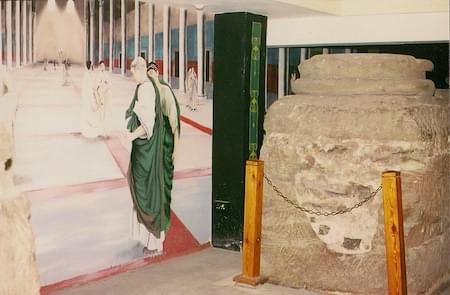
Roman colonade under Northgate Street, Chester
-
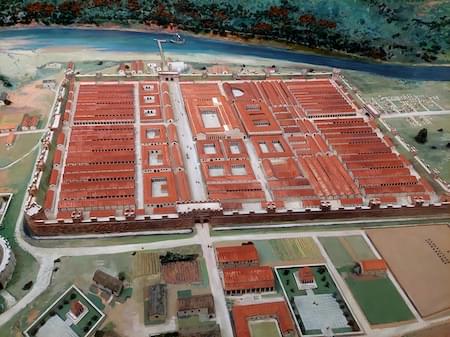
Deva built by XXLegion
-
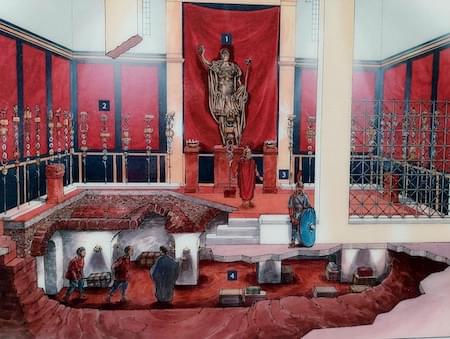
Reconstruction of bank under Northgate Street, Chester
-
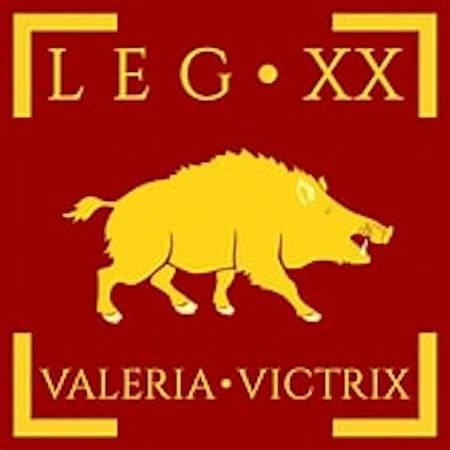
Valeria Vitrix Legio XX
-
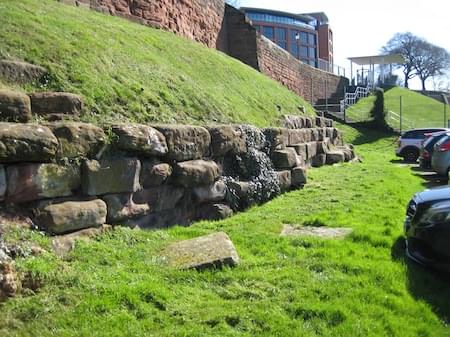
Roman Quay on Roodeye, Chester
-
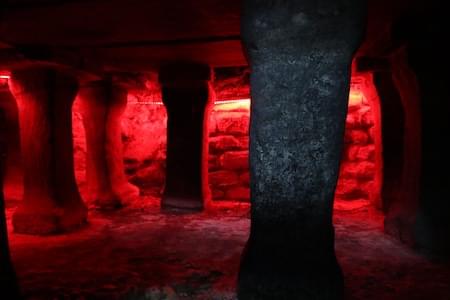
Hypocaust under Bridge Street, Chester
